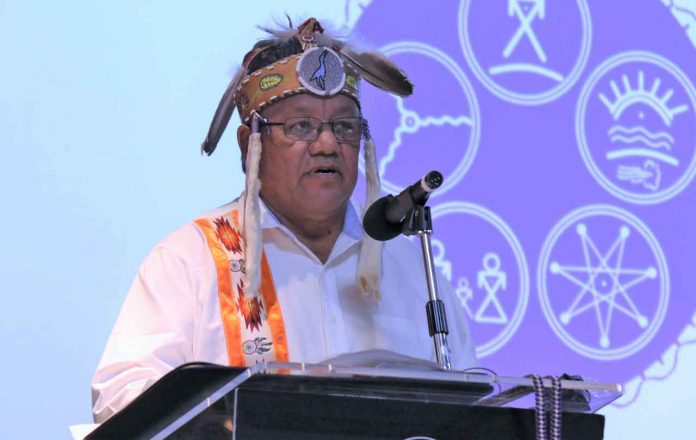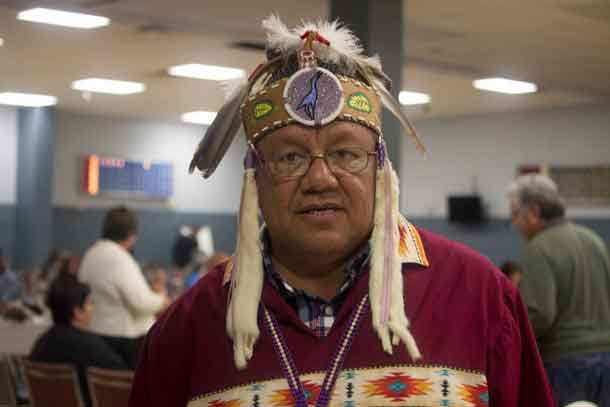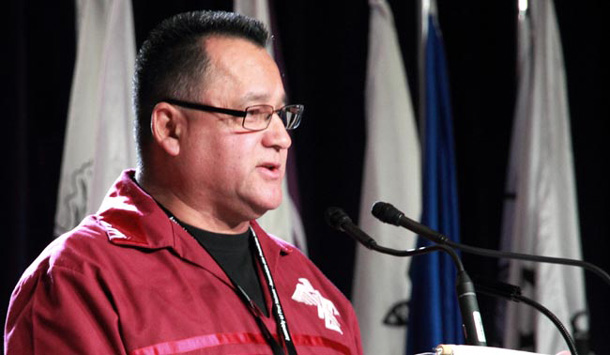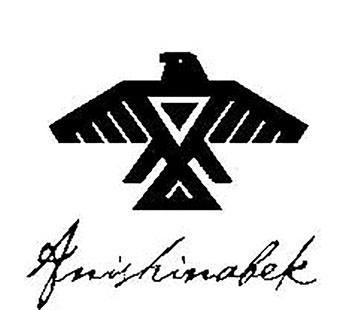ANISHINABEK NATION HEAD OFFICE – The work we are doing is the building of the Anishinabek Nation Naaknigewin – our Naaknigewin. This journey began 25 years ago; leadership took the first step and now we are taking that next step. This message was recently shared by Anishinabek Nation Grand Council Chief Glen Hare with First Nation leadership and members at our Governance Summit in Sault Ste. Marie.
Anishinabek Nation Grand Council Chief Glen Hare said that he is pleased to hear that there were more “yes” than “no” votes for the first group of First Nations voting on the proposed Anishinabek Nation Governance Agreement.
“Although most of the First Nations didn’t reach the threshold, some were very close and could be eligible for a second vote at a later date. We are beginning internal discussions with those First Nations this week,” says Grand Council Chief Hare. “There will be nine First Nations running a vote in May 2020 and we look forward to seeing the successful outcomes of their votes.”
Each First Nation running a vote on the proposed Anishinabek Nation Governance Agreement must meet the following threshold: a minimum of 25% plus 1 of a First Nation’s Eligible Voters must vote ‘yes’ and there must be more ‘yes’ votes than ‘no’ votes to ratify the Agreement. This threshold is part of the proposed Anishinabek Nation Governance Agreement protocol for the vote, as it is with many ratification votes for agreements with Canada.
The official results of the vote will not be available until after the 10-day Appeal Period has passed. On March 11, we hope to be able to communicate the official results and what the next steps will be. If an appeal is submitted within the 10-day window, the Appeal Board will then have another set amount of time to determine their decision. It could be more than 10 days that official results are announced, depends on any appeals.
The proposed Anishinabek Nation Governance Agreement recognizes, not creates, the Anishinabek First Nations’ law-making powers and authority on how they will govern themselves, and removing them from the governance provisions of the Indian Act. The First Nations that ratify the proposed Anishinabek Nation Governance Agreement will have the power to enact laws in the following areas: leadership selection, citizenship, language and culture, and operation of governments.
Under the proposed Agreement, certain provisions of the Indian Act that deal with governance will no longer apply to the First Nations that ratify. The First Nations will pass their own laws for how they select their Chiefs and Councils; determine who their citizens are without interference from external governments; allocate necessary financial support dedicated to the restoration and preservation of their language and culture; and manage their First Nation government operations. The funding amounts are significant enough to ensure there is positive change in the communities and is a first step away from financial and administrative control by Canada over Anishinabek.
The Anishinabek Nation is a political advocate for 39 member First Nations across Ontario, representing approximately 65,000 citizens. The Anishinabek Nation is the oldest political organization in Ontario and can trace its roots back to the Confederacy of Three Fires, which existed long before European contact.






